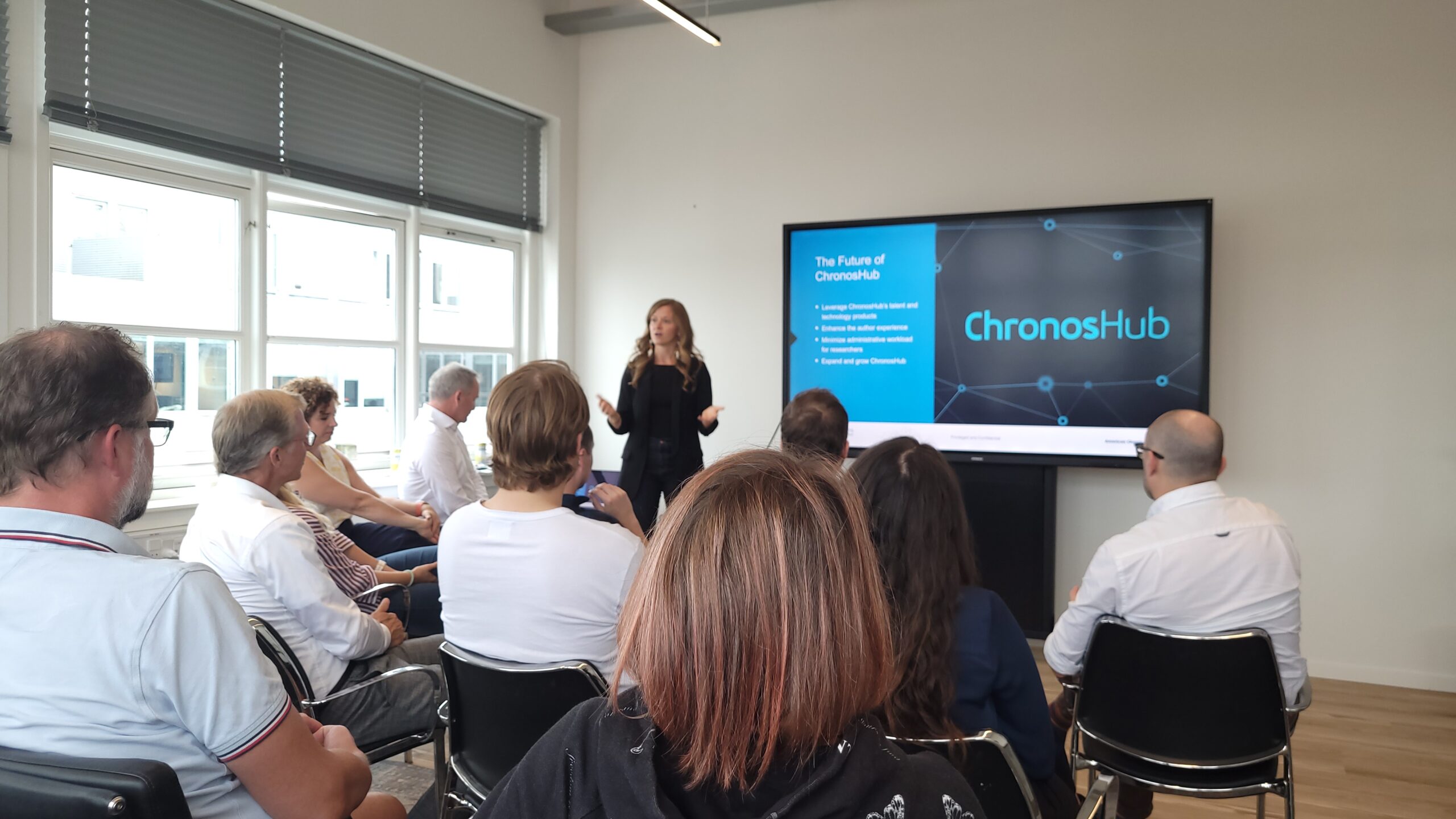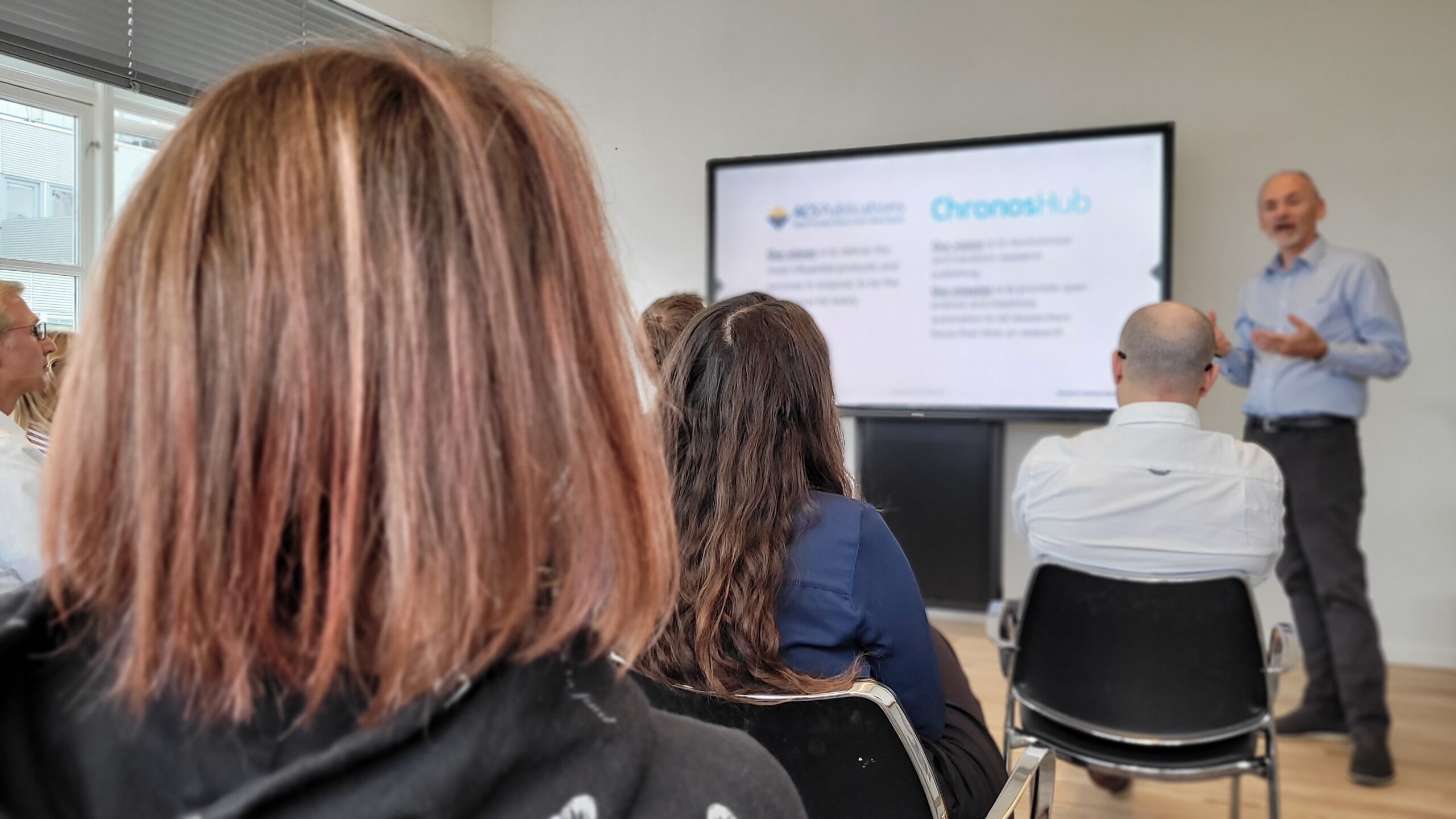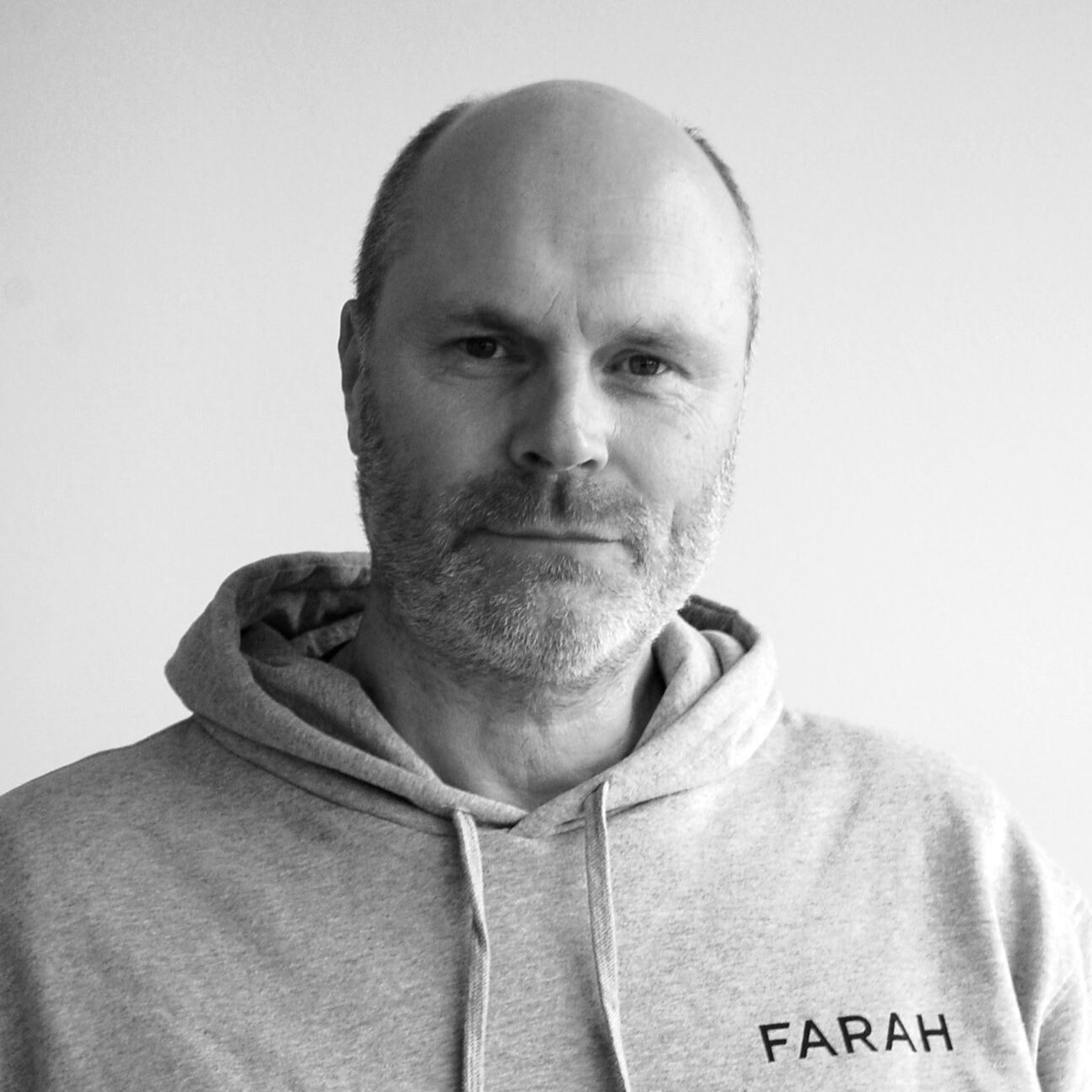About us
We bring fresh tech and new thinking to scholarly publishing
We’re a close-knit Danish startup with a steadfast belief in the importance of research. Our platform makes life simpler for the ecosystem that brings that research into the world: scholarly publishing.



Who we are and what we do
We started ChronosHub because we could see that scholarly publishing had an infrastructure problem. And it was only going to get worse.
Back in the 2010s, the Open Science movement was picking up steam. In response, publishers introduced new routes for authors to publish. Instead of being behind paywalls, now articles would be free and accessible to everyone.
These models required new and potentially complex workflows to manage things like licenses, APCs, agreements, and more. Scholarly publishing’s legacy systems weren’t up to the task. Authors and admins alike were getting buried under endless email chains, multiple logins, and clunky forms.
We launched ChronosHub in 2017. We act as a tech enabler: integrating with the industry’s existing systems and bringing their processes into a user-friendly, data-enriched platform, that simplifies collaboration across the whole publishing journey.
We’re an international team headquartered in Copenhagen, with a handful of employees working remotely from elsewhere in Europe and the US.
... communicate without the fluff
Clear and open communication is the grease in our wheels. It keeps our pace lively while preventing misunderstandings with customers and colleagues.
... pride ourselves on being reliable
To earn our customers’ trust, we deliver on what we promise. Time and again. This focus on dependability is core to how we work with each other too.
... bring the best out of each other
We’re never shy about sharing our expertise. Or asking a colleague to share theirs. Truly supportive and open-minded collaboration lifts us and the entire company.
... perform when we’re having fun
We take time to laugh and catch-up, both in and outside the office. This relaxed atmosphere uncorks creativity. And sees us through challenging times, together.
ChronosHub milestones
2017
Christian Grubak and a small crew launch the company with support from the Gates Foundation. Initially built to promote the foundation’s OA policy, we’ve since re-designed our platform to scale to the broader research community.
2020
After a lot of brainstorming, we decide on a new name: ChronosHub. “Chronos” for the ancient Greek God who symbolizes time, which we save our customers a lot of! And “Hub”, because we bring workflows together in one place.
2023
We’re acquired by American Chemical Society (ACS), a nonprofit with a history of excellence in science education. As an independent subsidiary, we keep our customers’ data behind a firewall between ACS’s and our business functions.
2025
A year of milestones! Landmark customers, including IEEE and ASM, launch on ChronosHub. We add a middle management layer to our leadership team. And our total employee count hits 40+. It feels like we’re just getting started.




























